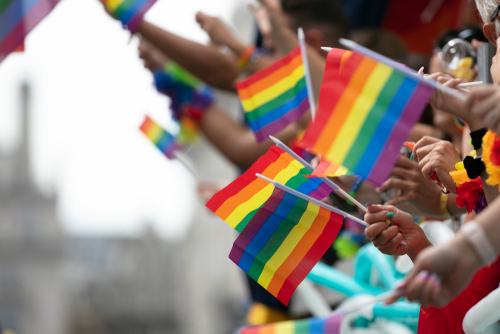LGBTQ is an acronym that stands for lesbian, gay, bisexual, transgender, and queer or questioning. Individuals that identify as LGBTQ are often subject to hate crimes (e.g., physical and/ or emotional abuse, threats, public humiliation, etc.), sexual orientation discrimination, and/ or rejection from loved ones. Members of the LGBTQ community are at increased risk for a developing mental illness. LGBTQ individuals often struggle with and seek professional support for gender dysphoria and/ or sexual identity issues. There is an assortment of reasons a person may wish to pursue counseling that may or may not directly relate to identifying as a member of the LGBTQ community (e.g., anxiety, grief, depression, PTSD, etc.). Learning additional coping mechanisms, conflict resolution tactics, and effective means for integrating experiences can behoove any person. Therapy and treatment approaches that are free of judgment and inclusive of all, such as DBT, are fundamental in LGBTQ-oriented therapy practices.
Dialectical Behavior Therapy
Dialectical behavior therapy (DBT) is a form of psychotherapy that combines the practices of cognitive behavioral therapy (CBT) with concepts derived from Buddhist meditative practice. DBT places greater emphasis on the psychosocial aspect of treatment. Marsha M. Linehan developed DBT in the late 1980s as a means to better treat chronically suicidal individuals diagnosed with borderline personality disorder (BPD). Since its inception, dialectical behavior therapy has been and remains the gold standard method of treatment for individuals diagnosed with BPD. Although DBT was originally developed to treat individuals diagnosed with borderline personality disorder, evidence has shown it to be a successful treatment method for individuals diagnosed with other mental health illnesses.
Dialectical behavior therapy is made up of three distinct therapeutic settings, which include: weekly group DBT skills sessions, weekly individual psychotherapy sessions, and as-needed phone coaching. The DBT group skills sessions focus four primary behavioral skill modules, which include: core mindfulness (focusing skills), distress tolerance (crisis survival skills), emotion regulation (de-escalation skills), and interpersonal effectiveness (relationship/ people skills). Individual therapy sessions provide one-on-one attention to help the person go over skills learned in the group sessions. It enables an individual to further explore and dissect how the processes of implementing the skills has been effective throughout the week as well as identify areas that may need further attention. Phone coaching is available as support between sessions should crisis arise. The goals of the DBT approach are to provide LGBTQ individuals with new skills to effectively manage painful and difficult emotions and to minimize conflict in relationships, that are guided by a theoretical model for understanding sexual stigma. There are a variety of DBT programs available to people that identify as part of the LGBTQ community in Los Angeles, California.
Disclaimer:
The information above is provided for the use of informational purposes only. The above content is not to be substituted for professional advice, diagnosis, or treatment, as in no way is it intended as an attempt to practice medicine, give specific medical advice, including, without limitation, advice concerning the topic of mental health. As such, please do not use any material provided above to disregard professional advice or delay seeking treatment.


